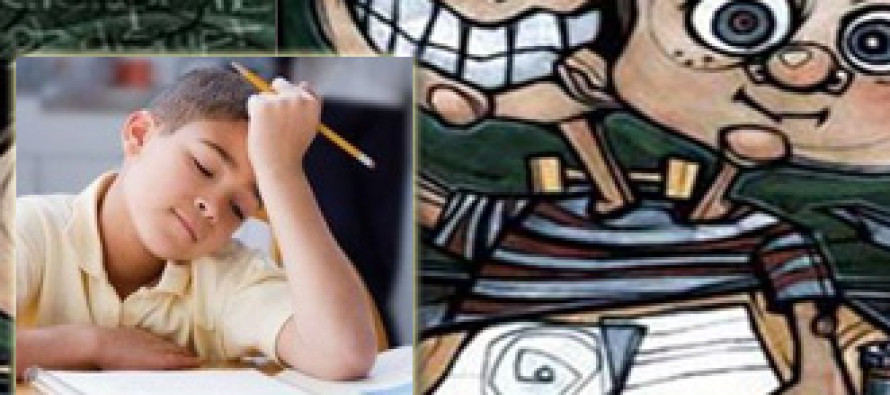My Son isn't Doing Well in School!

Temmy is a 7-year-old boy brought in by his mother to Child Psychiatrist at the school’s recommendation.
Temmy’s mother Mrs. Rose describes Temmy as exuberant, and "always running." He went to a preschool where "free play was encouraged." Since he started 1st grade, he has had a difficult time sitting still, and he gets up multiple times during class. There has been some trouble and she is concerned that the school is too strict or isn’t the right environment for him.
The Child Psychiatrist obtains written permission to speak to the teacher who describes Temmy as "on the go." Teacher also reported that Temmy always fidgets or leaves his seat. On a class trip he had a great deal of difficulty staying with the group and was running around the exhibit hall. She says that he is a nice child who at times has difficulty with peers because he is unable to wait his turn or blurts out answers. He has had a couple of playground accidents because of inattention.
Temmy has no past history of physical or mental illness and he is not on any medication. His Father had a "hard time in school," stopped after 11th grade, and has own house painting business. Temmy’s mother also reported that the pregnancy, delivery, milestones, toilet training were with in normal range with Temmy.
 As observed by the Psychiatrist during the interview Temmy appears his age, shirt untucked, shoes untied well related. He was restless in the interview session and was trying to climb on file cabinets; He was easily distracted by noises outside. His speech and language was unremarkable. There was no depressed mood or anxiety. His favorite thing about school is recess.
As observed by the Psychiatrist during the interview Temmy appears his age, shirt untucked, shoes untied well related. He was restless in the interview session and was trying to climb on file cabinets; He was easily distracted by noises outside. His speech and language was unremarkable. There was no depressed mood or anxiety. His favorite thing about school is recess.
The Psychiatrist after careful assessment and with the given corroborative informa¬tion from the school and with available family history of father suggested most likely diagnosis of ADHD (Attention deficit Hyperactivity disorder) But the psychiatrist wanted to rule out other possibilities first before reaching into conclusion and diagnosis therefore it was suggested to assess his hearing and vision, and whether he has a nutritional deficiency, thyroid abnormality, or substance-induced problem. For instance he might be drinking large amounts of caffeinated soda. The differential diag¬nosis also includes conduct disorder. The symptoms of ADHD have considerable overlap with other dis¬orders. Therefore, it is crucial to see them in the context of the child’s developmental stage, and to look for other possible causes.
Other wise this child meets criteria for ADHD, hyperactive impulsive subtype (To make a diagnosis of ADHD, there must be at least 6 months of either six inattentive or six hyperactive/impulsive symptoms. The symptoms must be maladaptive inconsistent with developmental level and must cause functional impairment.
ADHD is not usually diagnosed until the child enters school; this is probably because of more stringent expectations. It is important to differentiate the normal, age-appropriate exuberance and attention span of a toddler/preschooler versus developmentally inappropriate problems.
Following are the symptoms of INATTENTION – fails to give close attention to details or makes careless errors in schoolwork, has difficulty sustaining attention in tasks or play ,does not seem to listen when spoken directly, does not follow through on instructions and fails to finish chores or work (not because opposition or not understanding) ,avoids or dislikes tasks that require sustained mental effort ,has difficulty organizing tasks and activities, loses necessary things (toys, books, etc.) ,Is easily distracted by extraneous stimuli and Is forgetful in daily activities.
Following are the symptoms of HYPERACTIVITY – fidgets or squirms, talks excessively, has difficulty playing quietly, he Is "on the go," as if "driven by a motor" ,runs or climbs excessively in inappropriate situations (adolescents may be subjectively restless), leaves seat in class or when sitting still is expected, Is impulsive ,blurts out answers and has difficulty awaiting turn, Interrupts or intrudes on others.


